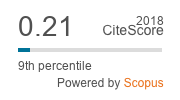Vieses Cognitivos entre Consumidores num Dilema Social Simulado
Falso Consenso, Erro Fundamental de Atribuição, de Ator-Observador e de Autosserviço
Palabras clave:
Dilemas sociais, Vieses cognitivos, CooperaçãoResumen
Decisões entre cooperar e competir são fundamentais em dilemas sociais, quando interesses individuais de consumo estão em conflito com benefícios coletivos. O objetivo desta pesquisa foi testar a ocorrência de vieses de cognição social em um dilema simulado, com base nos procedimentos de Gifford e Hine (1997). Após jogarem o software FISH em condições de cooperação e competição, os participantes relataram suas auto e hetero percepções. Foram verifcados o viés de falso consenso e o erro fundamental de atribuição, mas os vieses de autosserviço e o ator-observador se mostraram efeitos mais limitados e apenas entre cooperadores. Discutem-se algumas implicações teóricas, metodológicas e práticas dos fenômenos no contexto do consumo sustentável.



